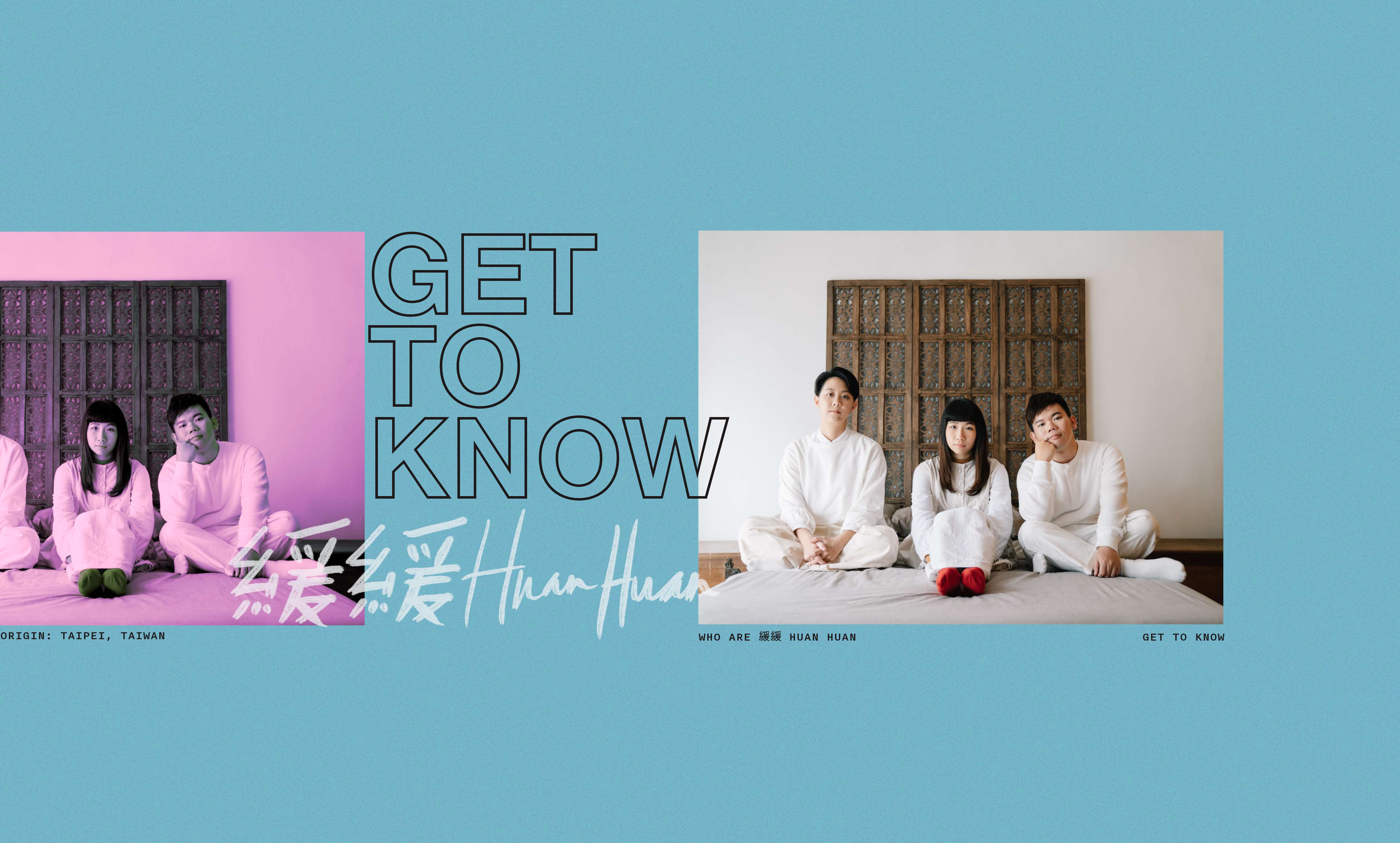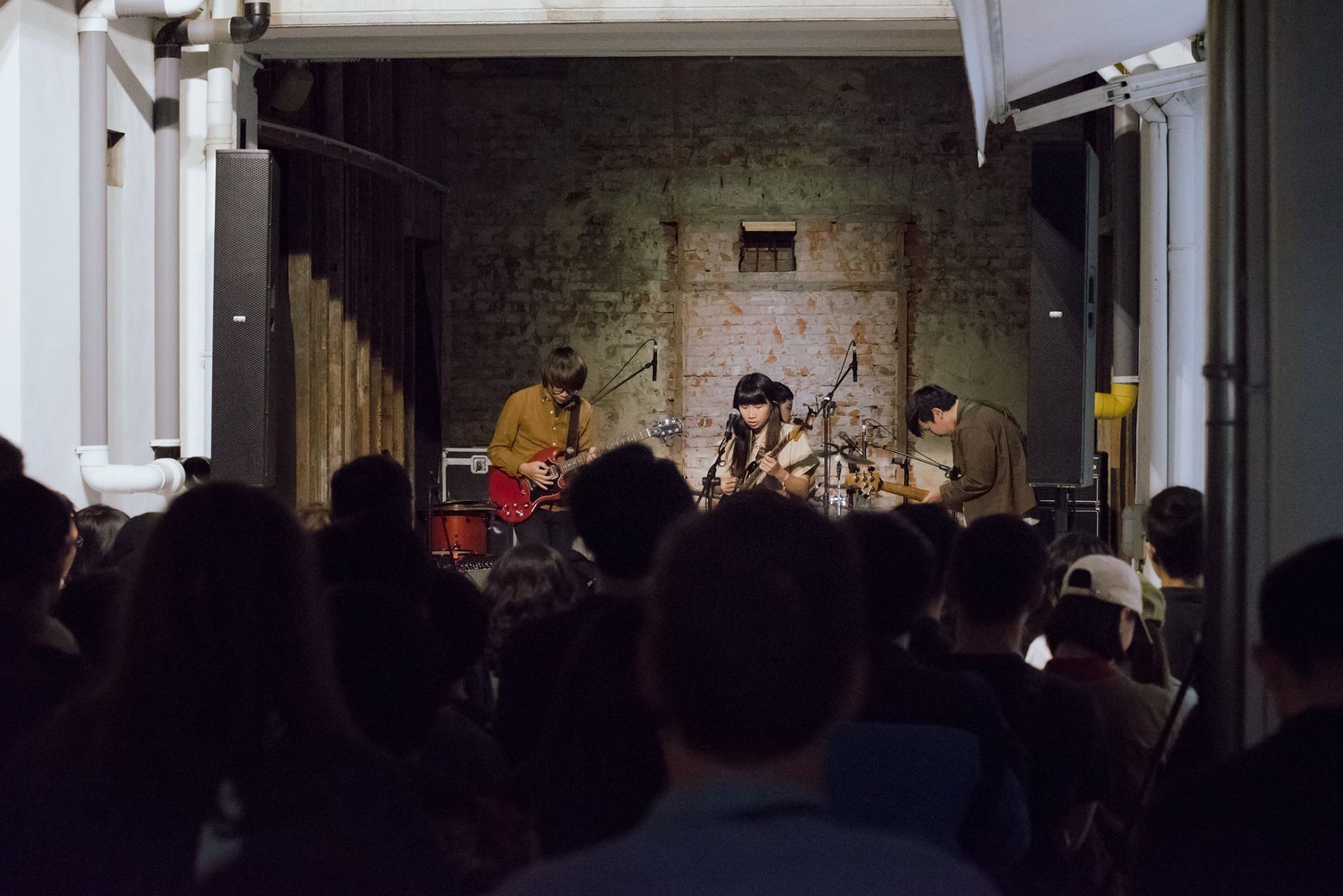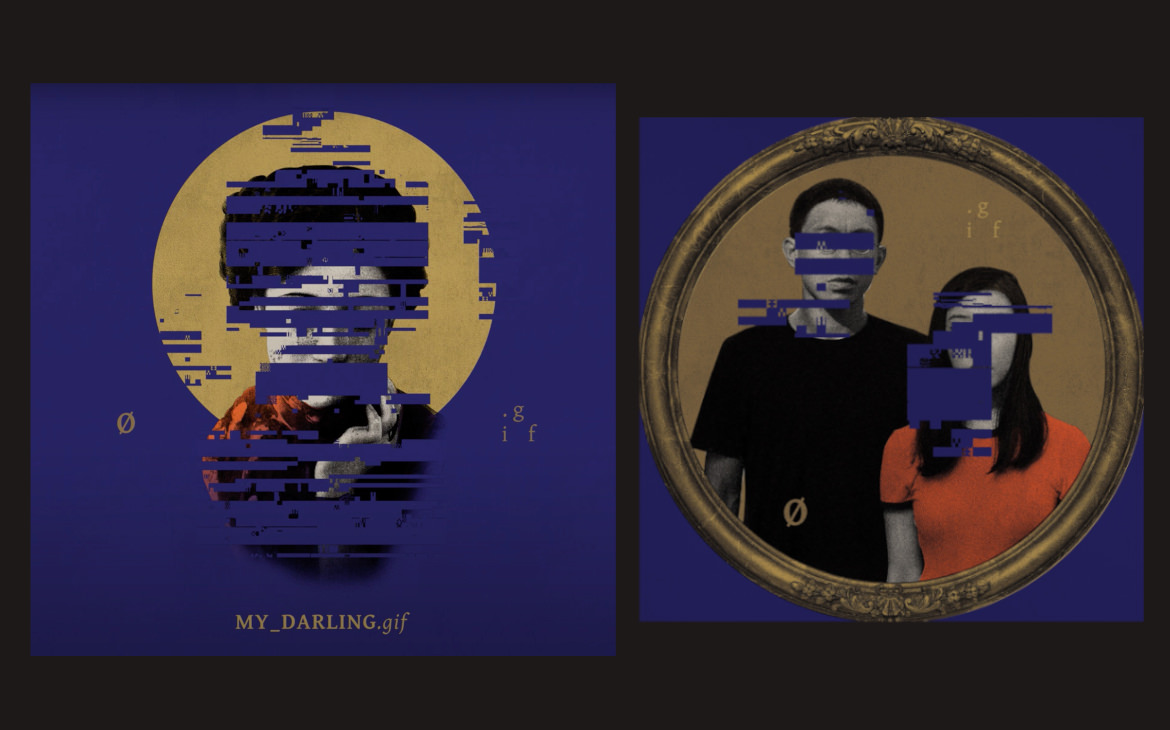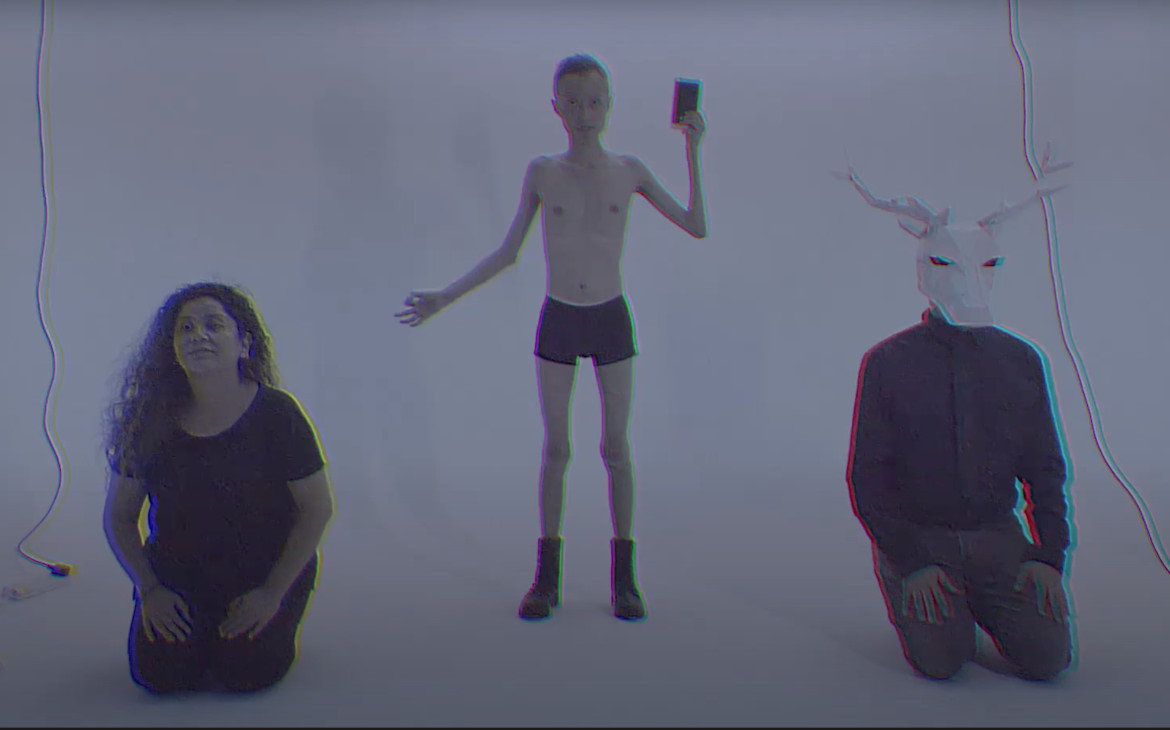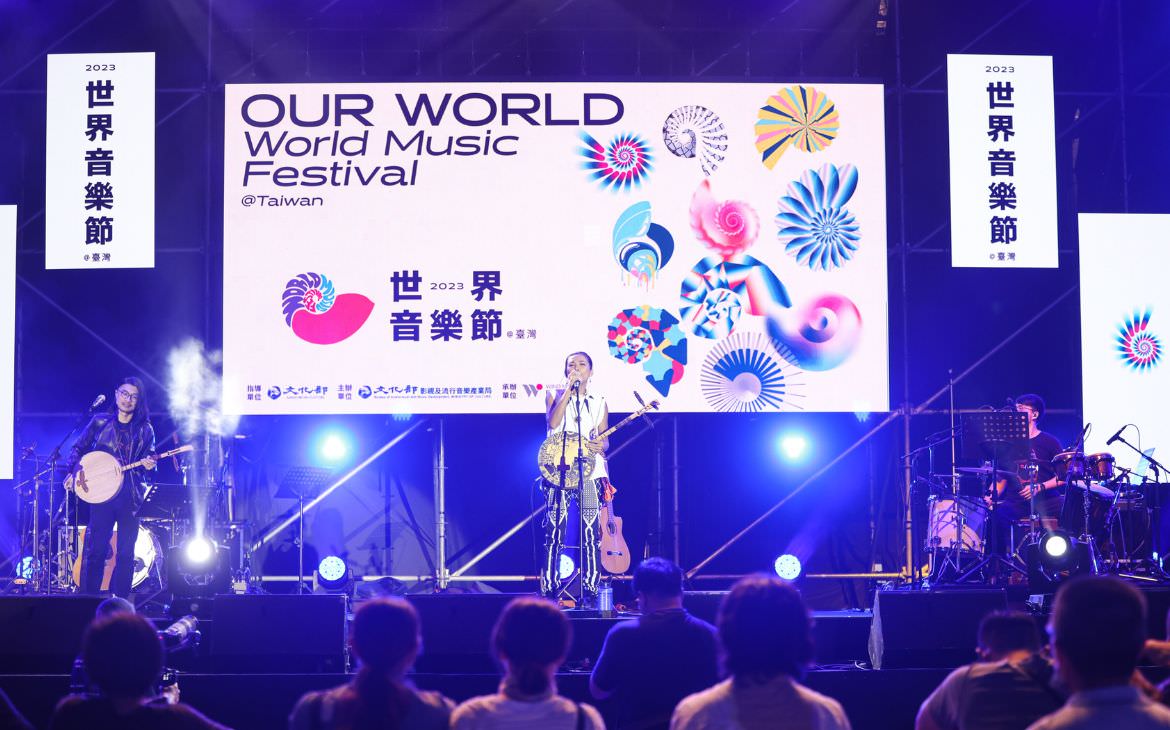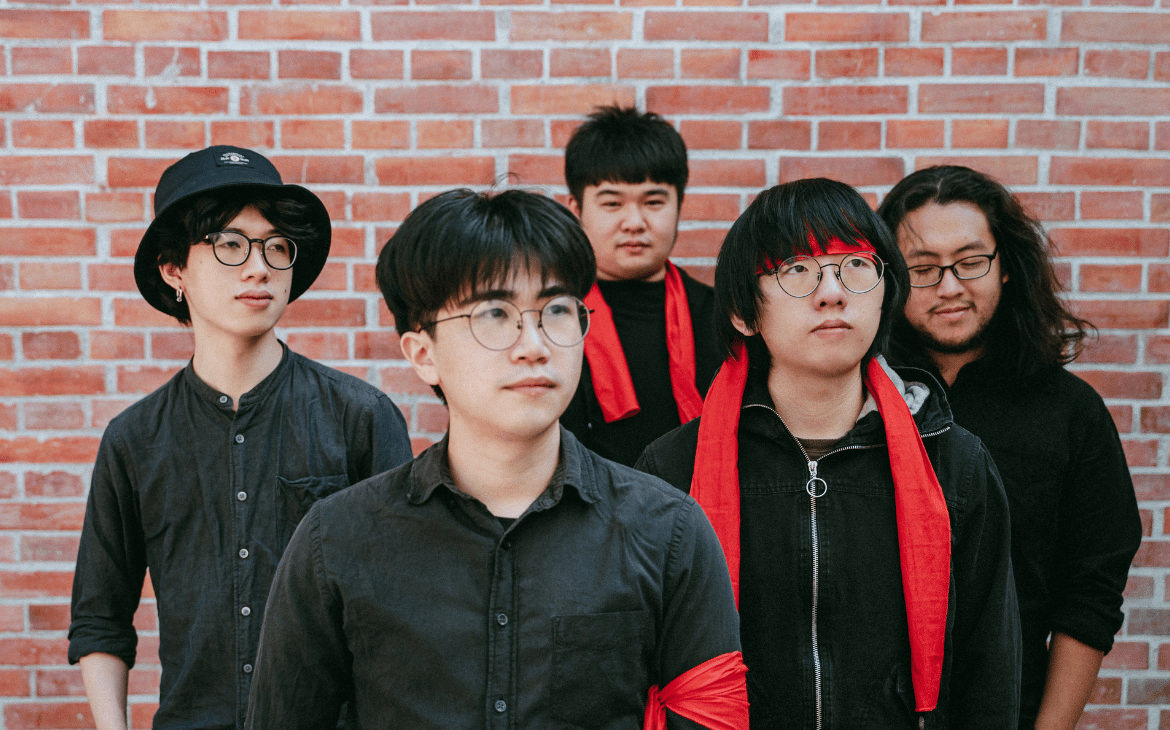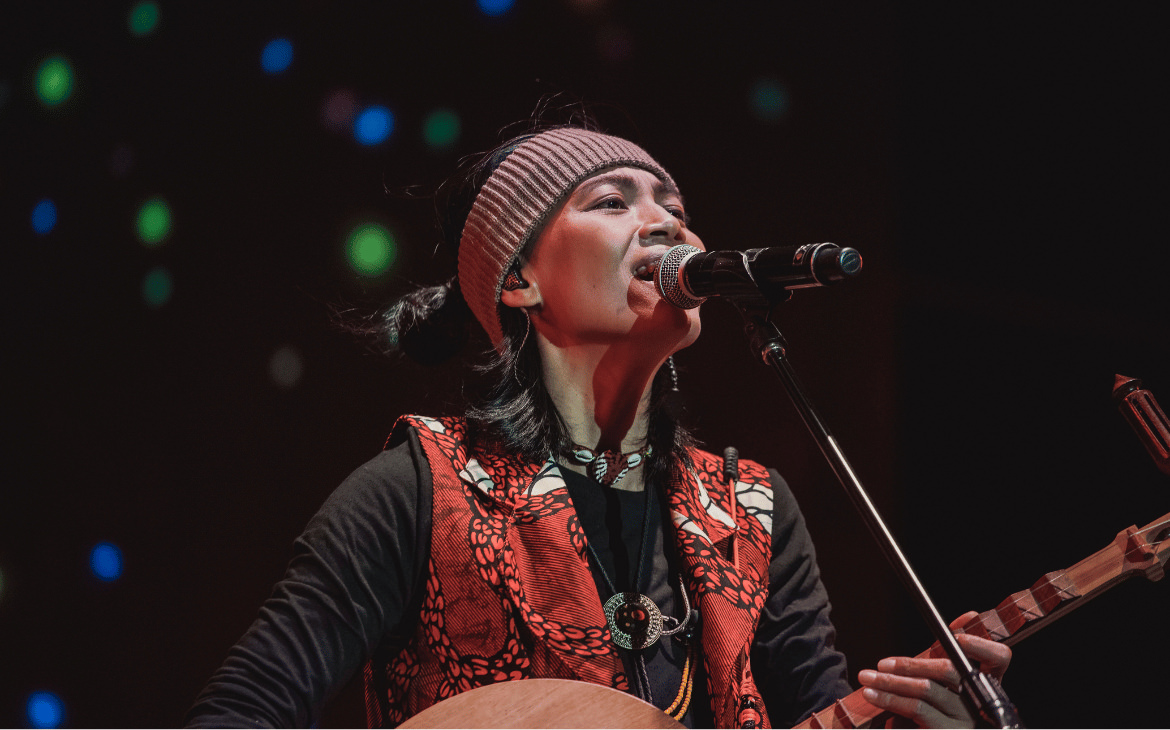WORDS AND LAYOUT DESIGN BY MC GALANG
ALL ARTIST PHOTOS COURTESY OF COCO HSIAO
During Taiwan’s LUCfest 貴人散步音樂節 2019’s opening night, I was approached by two young-looking people who introduced themselves as members of local band, 緩緩 Huan Huan. They invited me and Ian to watch their set later that evening at B.B. ART, an art gallery converted to a live music venue for the duration of the music festival weekend. We then had a long chat about showcase festivals such as LUCfest that offers a unique opportunity for Taiwanese independent artists to appeal to a global audience, carving their own space instead of trying to break into the mainstream industry that prioritizes commercial pop.
Taipei-based 緩緩 Huan Huan’s sound is an amalgam of shoegaze, indie rock, post-rock, britpop, and slowcore. The trio, composed of 蕭戎雯 Coco Hsiao (vocals and guitars), 彭一珍 Yi Jen Peng (drums)—whom I spoke with early that evening—黃柏豪 Po Hao Huang (bass), and sessionist 包子 Myles (who plays guitars for instrumental rock band 體熊專科 Major in Body Bear) performed a set shortly after 9 o’clock. They played “Charlie,” which became an instant favorite, with its sprawling textures and noise that seem to stretch the gallery space, reminding me faintly of My Bloody Valentine’s “Who Sees You” and Slowdive’s “Star Roving,” the way the guitars drone, space out, and turn nebulous, and Hsiao’s vocals become ambient sound.
With a wide range of genres to experiment with, the band tries not to cram everything into each release. Their debut self-titled EP (2017) is similar to its follow up, Charlie (2019): heavy and atmospheric. But the second track to Charlie, unironically titled “Indiepop,” sees the band transitioning to more melodic, gossamer pop. Their latest single, “I’d better be on time,” which dropped earlier this week, abandons fuzz and distortion for britpop and folk.
In an interview with The Rest Is Noise, Hsiao explains their decision to explore a different sound. “For us, it’s actually a natural process to write music closer to folk. I think I can sum it up to three reasons: one, we’re getting old; two, new band personnel; and three, we’re learned to play new instruments like synthesizers and new DAW (digital audio workstation) techniques, and we listen differently now,” she said. “We still love dream pop and post-rock, it’s just that the acoustic elements are heavier than before, which is also the type of music we wanna play. It’s gradually changing for some time, too. After our ex-guitarist, Mai, a shoegaze lover, left the band, it’s been a very different route since.”
The single is part of an upcoming album, which they plan to release mid-year. She shares, “Everything we were writing now sounds more folk in the first place, so the song was meant to sound that way. I’ve always loved Alex Turner’s ‘Submarine’ and Daughter’s ‘If You Leave,’ so now I’m more intrigued by [using] acoustic guitars and synthesizers.”
“I’d better be on time” was written when Hsiao attended school in Boston, Massachusetts. She recalls, “It was my first time staying abroad for a relatively long time, so everything was quite different from Taiwan. Boston is a very beautiful city blended with a kind of a laid-back feeling, and the pace is so much slower than Taipei, which kind of suits me. The atmosphere of this tune projects part of my memories while in Boston: slow subway, big boulevards with only a few people, and a great autumn season.”
The song is a personal account of an important period in Hsiao’s life. “I was in the middle of a transition in my life, trying to pursue music instead of my original job. It’s never an easy thing. However, I feel fulfilled and happy to have this kind of opportunity to transform. This song is basically about the transition of life and how you cope with all kinds of emotions from the past and get ready for the future. I’m not a really on-time person so it’s also a reminder to myself, I’d better be on time, for good,” she tells us.
As for the process of arranging the song, “I started with the tunes and the lyrics using an acoustic guitar and recorded the vocals in the beginning. It took a while before I did the arrangement with the rest of the band. Luckily, during the recording process, it wasn’t affected by the pandemic. Hopefully, it’s gonna be the same for the rest of the album production.”
For Hsiao, she remains positive about the future, for her band and what comes after the global health crisis—“I feel like it’ll open up possibilities for us and our music. I look forward to it.”

